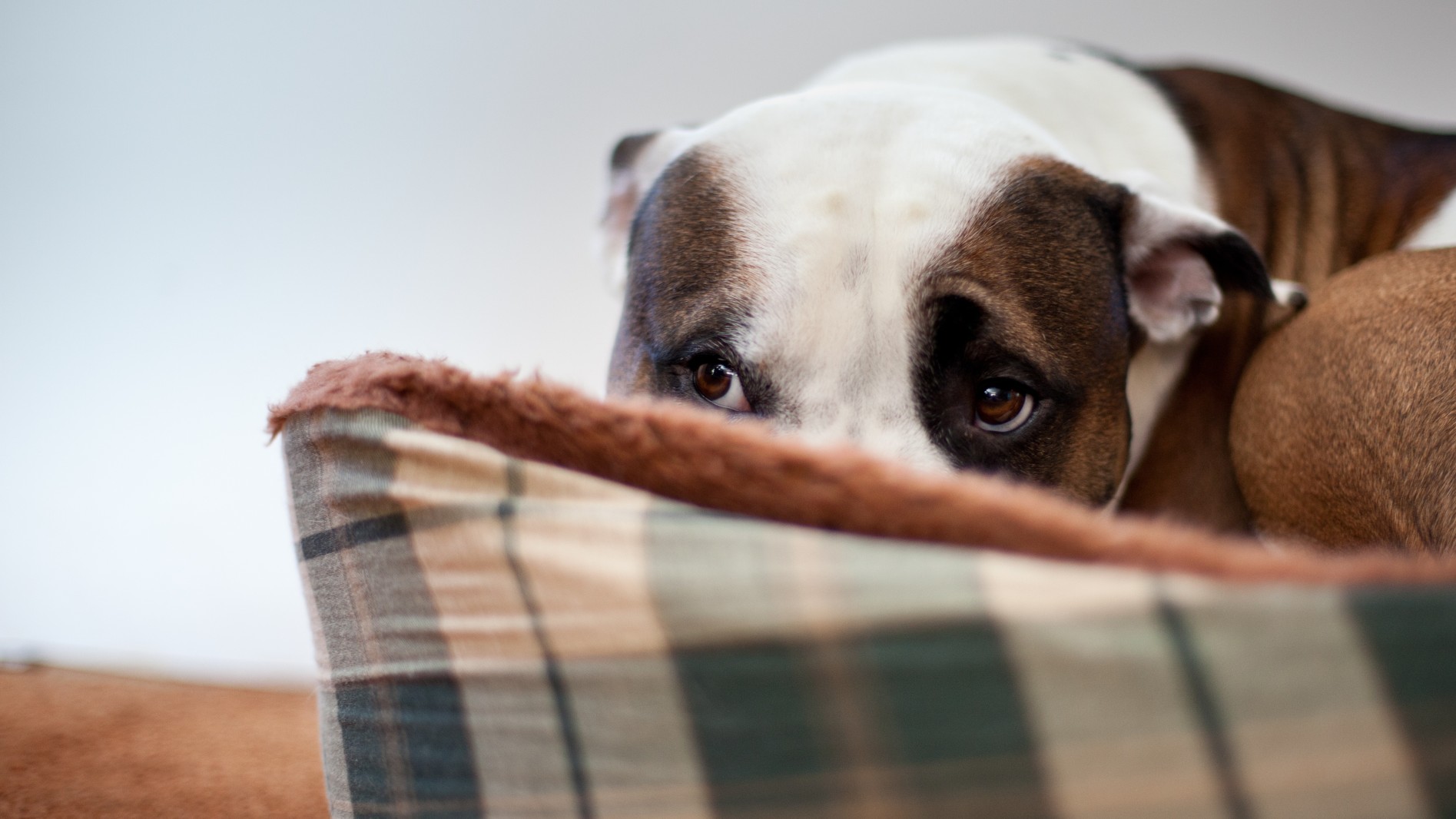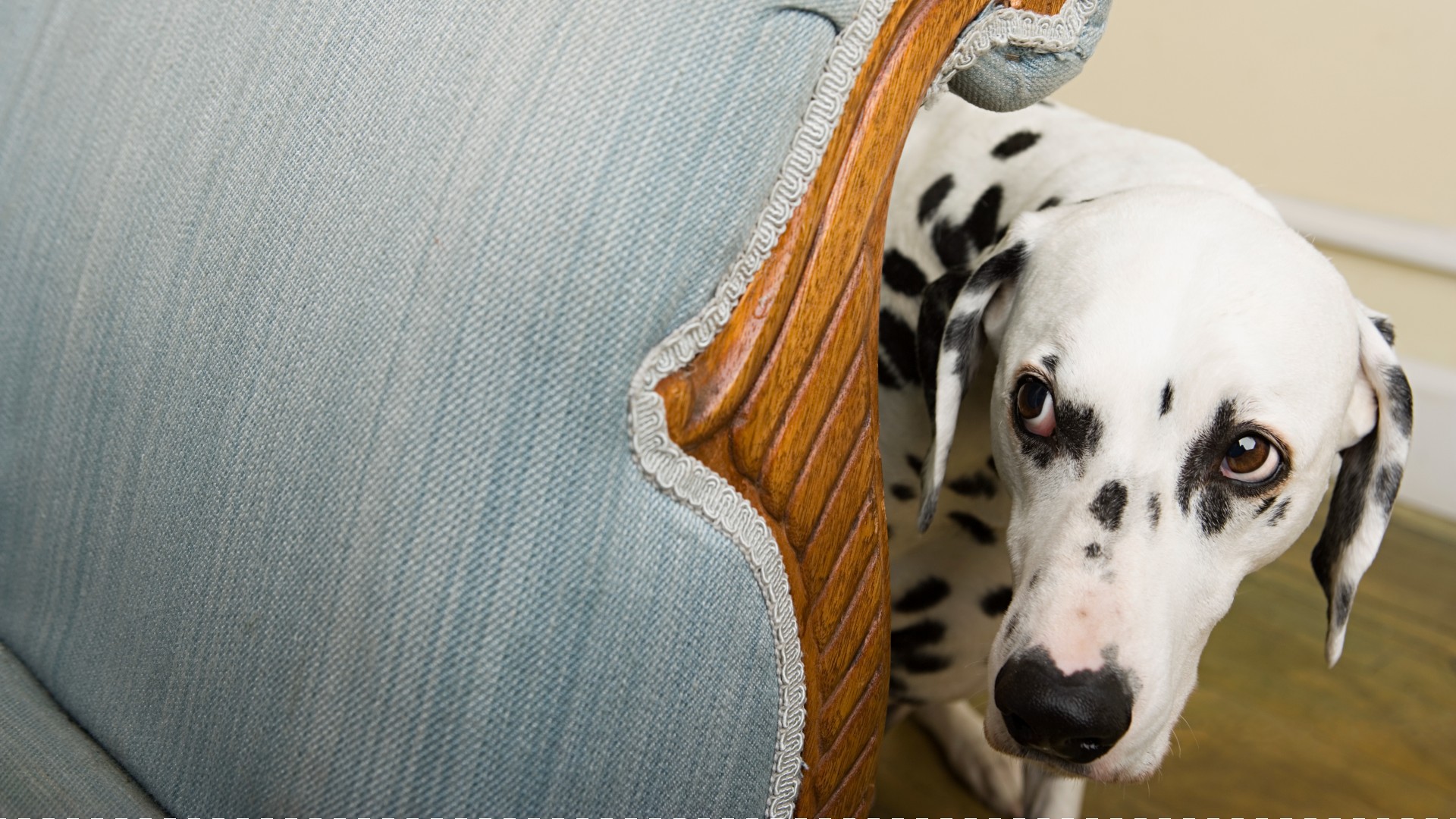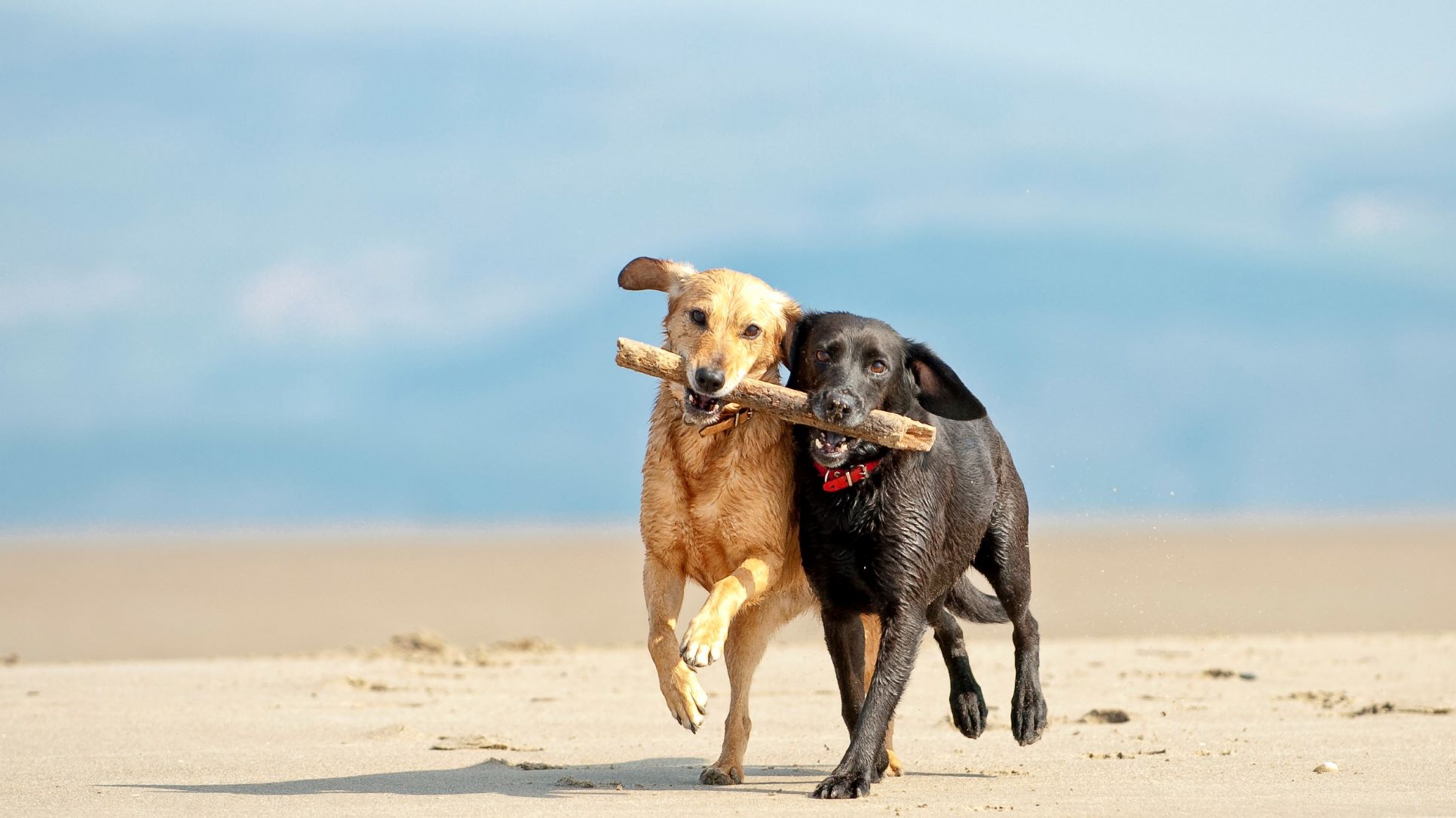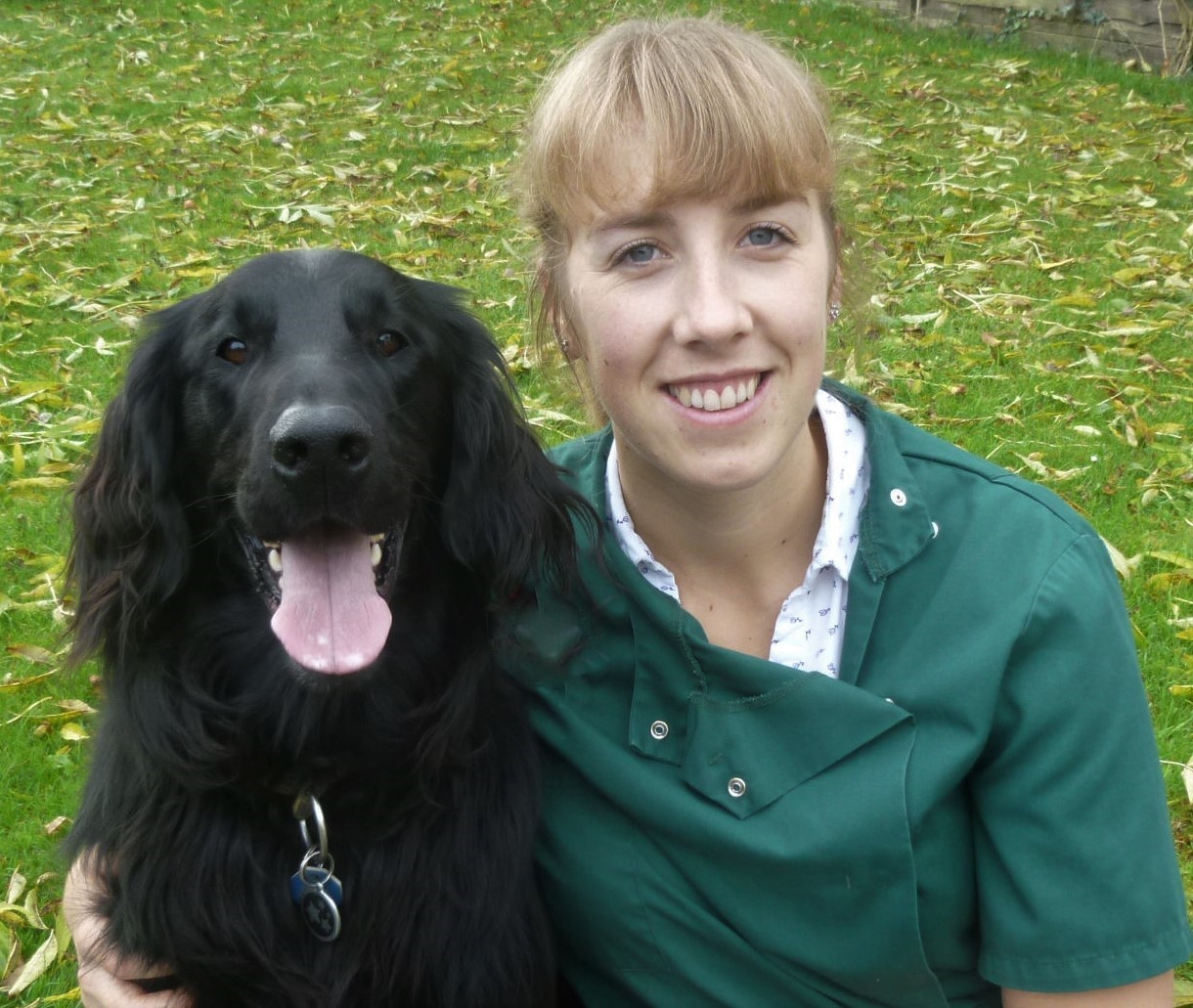How do I know if I have a scared dog? Our vet explains
A scared dog can be tricky to manage, our vet explains how to help your fearful pet

Get the best advice, tips and top tech for your beloved Pets
You are now subscribed
Your newsletter sign-up was successful
Do you have a scared dog? Just as with people, pets’ personalities differ, meaning that some animals may show fear more readily in certain situations.
Fear is an emotion that can be difficult for your dog to control, so your reaction to it is important. Lots of dogs have obvious triggers such as fireworks but for others, their anxiety can be a bit more subtle.
In this article, we are going to explore some of the signs that may suggest that your dog is feeling scared, as well as some of the practical steps you can take to make them feel more at ease again.
Signs of a scared dog
Dogs show us they are feeling scared through a combination of the following:
Behavior
Behavioral changes can be seen in anxious dogs, which help them to deal with the stress of the situation. These include:
- Running away
- Excessive vocalization (howling, whining, or barking)
- Destructive behaviors like digging or chewing
- Restlessness or pacing around
- Excessive drinking
- Self-traumatisation such as excessive licking
- Aggression such as growling, teeth-baring and biting
Physical signs
Dogs can show physical signs when they are feeling scared. These are reactions that occur due to hormones and chemicals released in the body in response to a fearful situation. You may notice the following in a dog that is scared:
- Panting
- Excessive drooling
- Dilated pupils
- Shivering or trembling
- Urinating or defecating
Body language
Many dogs will display body language that indicates they are uncomfortable with a situation. This is often quite subtle, usually seen before some of the more dramatic physical signs of fear discussed previously (such as drooling or having urinary accidents). The following body language may be displayed in an anxious animal:
Get the best advice, tips and top tech for your beloved Pets
- Stiff/tense posture
- Flattening their ears
- Tucking their tail between their legs
- Whale eyes (seeing the whites of the dog’s eye)
- Yawning
- Excessive licking of their nose
- Growling
- Teeth baring
Causes of fear in dogs

There is a whole array of things that could cause a dog to feel scared, but here is a list of some of the most common ones that are seen in veterinary clinics:
- Sound phobias: Fireworks, thunderstorms and loud traffic are frequent triggers for fear. Many dogs have sound phobias like these.
- Separation anxiety: Being left alone can be very distressing for some dogs. This is called separation anxiety when your pet struggles to be apart from you.
- Poor socialisation: If your dog has not been properly socialised they may be fearful of certain people, animals or situations. This can also lead to other issues like inappropriate aggression in dogs.
- Trauma: Animals that have suffered trauma, abandonment or abuse may readily show fear.
- Illness or pain: Being unwell or in pain can make an animal more prone to anxiety, which can result in fear-type behaviors. Vets see this very frequently. While your dog may normally be very well behaved, painful conditions or ill health can lead them to react fearfully e.g. pant excessively, tremble, growl, and even bite.
What dog breeds have the most anxiety?
Any breed can suffer from fear or anxiety but some seem more commonly affected than others. There is thought to be a genetic component to anxiety meaning that behavioral traits can be passed down to offspring (i.e., nervous parents are more likely to produce nervous puppies).
To reduce the chances of this occurring only dogs of good temperament should be bred. Dogs that commonly show signs of anxiety include many working breeds that need plenty of exercise and stimulation:
- German Shepherd
- Border Collie
- Vizsla
- Poodle
- Cocker Spaniel
How to help a scared dog
If your dog is scared it is worth trying to note if there is a specific trigger as this will help you tackle it more effectively.
Sound phobias
It is hard to avoid loud sounds altogether but you can help manage your dog’s anxieties. For example, during fireworks and thunderstorms, you can try and muffle the sound by closing windows and curtains, and by turning on the television.
Providing your pet with a den to hide in with his favorite toys can be helpful too. A sound desensitisation program should be implemented longer term though to help your dog properly deal with his phobias.
Separation anxiety
There are several things you can do to reduce separation anxiety in dogs. A desensitisation training program will help your pet get used to being left alone. The basic principle is to start by leaving your dog for very short periods and build it up gradually over time. This process is best carried out with the help of a qualified pet behaviorist.
Poor socialisation
Puppies should be socialised from a young age and exposed to a variety of sights and sounds, including animals, people, vehicles and household appliances. Between 8 and 12 weeks of age is considered a crucial time for this.
Try to keep encounters positive, praising your puppy. If you have an older dog with socialisation issues then a qualified pet behaviorist should be considered as socialising a dog that is already scared can be tricky.
Trauma
It can take time to unpick the damage that previous trauma has caused. Seek professional help for a training program and medications that may help your anxious pet.
llness or pain
If your pet is acting out of character then a vet examination is a good idea. Sometimes further tests are advised or a trial of pain relief medication.
Ways to help your dog gain confidence

There are some general things you can do to improve your dog’s confidence, making them less likely to be fearful:
- Ensure they are receiving plenty of exercise, a tired dog tends to be a happy and relaxed dog.
- Provide mental stimulation through play and toys
- Use positive reinforcement training. Never scold or yell at a fearful dog as this will only make the issue worse
- Stick to a regular daily routine so that your pet knows what to expect each day
- Consider using calming appeasing pheromones
- Employ a qualified pet behaviorist to help create an appropriate training program for your pet
Dogs can demonstrate fear in a variety of ways. We must try and support our pets with their anxieties through a combination of training, confidence building and professional help. A happy dog will make for a better companion in the long run, so it is well worth spending time achieving this.
Rebecca is a veterinary surgeon who graduated from the Royal Veterinary College in London in 2009. She enjoys medicine in particular and she is proud to have achieved a BSAVA postgraduate certificate in small animal medicine (with commendation) from Nottingham Trent University in 2021.
She has a wealth of experience in first opinion small animal practice, having done a mixture of day-to-day routine work, on-call emergency duties and managerial roles since 2009.
She writes on various feline and canine topics for the Veterinary Content Company and a freelance basis, including behavior, nutrition, and health. Outside of work and writing she enjoys walking her own dog, spending time with her young family and baking!

